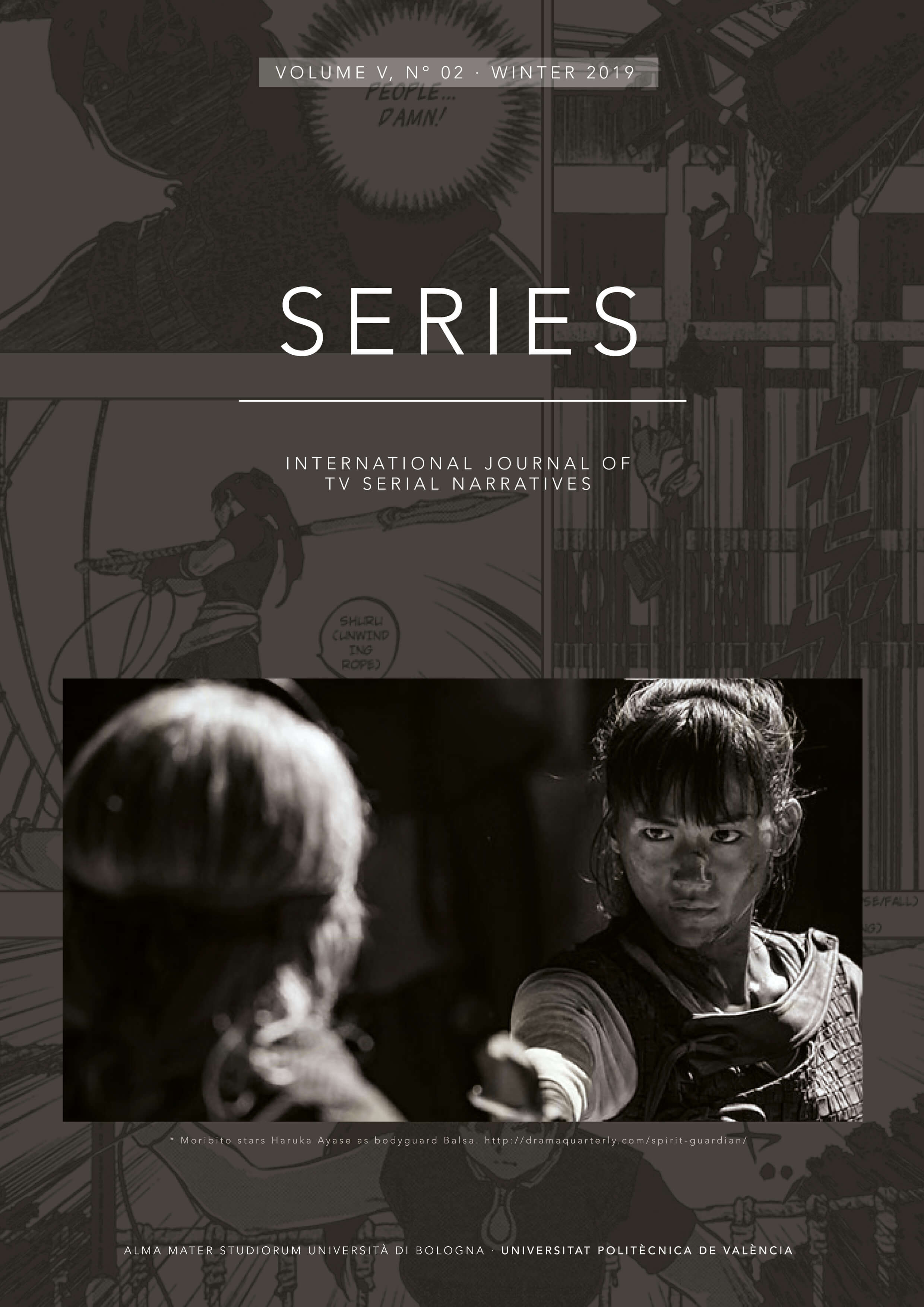'In This Corner of the World' and the Challenges of Intermedial Adaptation
DOI:
https://doi.org/10.6092/issn.2421-454X/9157Keywords:
Japanese television, manga, anime, adaptation, fidelityAbstract
In This Corner of the World, a Japanese television drama broadcast in summer 2018, is an adaptation of Kōno Fumiyo’s critically acclaimed manga with the same title and also its feature-length anime version directed by Katabuchi Sunao. Released in 2016, Katabuchi’s film, along with the latest work in the Godzilla franchise Shin Gojira (directed by Anno Hideaki) and Shinkai Makoto’s blockbuster anime Your Name, became a widely recognized social phenomenon. This article examines the television drama In This Corner of the World in relation to the original manga and anime adaptation to explore the problematics of intermedial adaptation. First, it briefly reexamines the discourses on fidelity in adaptation studies, and then discuss what the idea of fidelity can or cannot elucidate when it is applied to the interconnection among the three different versions of In This Corner of the World. Second, through a close analysis of the television drama and the original manga, it attempts to elucidate the formal challenges posed by cross-media seriality, including the issue of translatability of reflexive style and form from one medium to another, and explore the socio-political implication of a general shift from narrative seriality to cross-media seriality in the Japanese media landscape.References
Cavell, Stanley (1979). The World Viewed: Reflections on the Ontology of Film, enlarged edition. Cambridge: Harvard University Press.
Cutchins, Dennis (2017). “Bakhtin, Intertextuality, and Adaptation.” In The Oxford Handbook of Adaptation Studies, edited by Thomas Leitch, 71-86. New York: Oxford University Press.
Elleström, Lars (2013). “Adaptation within the Field of Media Transformations.” In Adaptation Studies: New Challenges, New Directions, edited by Jørgen Bruhn, Anne Gjelsvik, and Eirik Frisvold Hanssen, 113-32. London: Bloomsbury.
Elliott, Kamilla (2013). “Theorizing Adaptations/Adapting Theories.” In Adaptation Studies: New Challenges, New Directions, edited by Jørgen Bruhn, Anne Gjelsvik, and Eirik Frisvold Hanssen, 19-45. London: Bloomsbury.
Furuya Toshihiro (2018). Kyokō sekai wa naze hitsuyō ka? SF anime “chō” kōsatsu [Why Is Fictional World Necessary? A Hyper-observation on SF Anime]. Tokyo: Keisō shobō.
Hosoma Hiromichi (2017). Futatsu no Kono sekai no katasumi ni: manga, animēshon no koe to dōsa [Two Works of In This Corner of the World: Voices and Actions in Manga and Anime]. Tokyo: Seidosha.
Jameson, Fredric (1991). Postmodernism, or, The Cultural Logic of Late Capitalism. Durham: Duke University Press.
— (2011). “Afterword: Adaptation as a Philosophical Problem.” In True to the Spirit: Film Adaptation and the Question of Fidelity, edited by Colin MacCabe, Kathleen Murray, and Rick Warner, 215-33. New York: Oxford University Press.
Johnson, David T. (2017). “Adaptation and Fidelity.” In The Oxford Handbook of Adaptation Studies, edited by Thomas Leitch, 87-100. New York: Oxford University Press.
Kōno Fumiyo (2008–9). Kono sekai no katasumi ni. [In This Corner of the World], 3 volumes. Tokyo: Futabasha.
MacCabe, Colin (2011). “Introduction: Bazinian Adaptation: The Butcher Boy as Example. In True to the Spirit: Film Adaptation and the Question of Fidelity, edited by Colin MacCabe, Kathleen Murray, and Rick Warner, 3-25. New York: Oxford University Press.
Schober, Regina (2013). “Adaptation as Connection—Transmediality Reconsidered.” In Adaptation Studies: New Challenges, New Directions, edited by Jørgen Bruhn, Anne Gjelsvik, and Eirik Frisvold Hanssen, 89-112. London: Bloomsbury.
Downloads
Published
How to Cite
Issue
Section
License
Copyright (c) 2019 Mitsuhiro Yoshimoto
Copyrights and publishing rights of all the texts on this journal belong to the respective authors without restrictions.
This journal is licensed under a Creative Commons Attribution 4.0 International License (full legal code).
See also our Open Access Policy.





